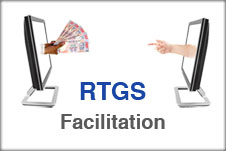Issuer of Currency – Detailed Crispy Notes
Overview of this system
- Along with Government of India, we are responsible for the design, production and overall management of the nation’s currency, with the goal of ensuring an adequate supply of clean and genuine notes.
- The Government of India is the issuing authority of coins and supplies coins to the Reserve Bank on demand. The Reserve Bank puts the coins into circulation on behalf of the Central Government.
- In consultation with the Government of India, we work towards maintaining confidence in the currency by constantly endeavouring to enhance integrity of banknotes through new design and security features.
Our Approach
- The Department of Currency Management at Central Office, Mumbai, in cooperation with the Issue Departments of the Reserve Bank’s Regional Offices across India oversees currency management.
- The function includes supplying and distributing adequate quantity of currency throughout the country and ensuring the quality of banknotes in circulation by continuous supply of clean notes and timely withdrawal of soiled notes.
- This is achieved through a wide network of more than 4000 currency chests of commercial banks. Currency chests are extended arms of the Reserve Bank Issue Departments and are responsible for meeting the currency requirements of their respective regions.
Our Tools
- Four printing presses print and supply banknotes. These are at Dewas in Madhya Pradesh, Nasik in Maharashtra, Mysore in Karnataka, and Salboni in West Bengal.
- The presses in Madhya Pradesh and Maharashtra are owned by the Security Printing and Minting Corporation of India (SPMCIL), a wholly owned company of the Government of India. The presses in Karnataka and West Bengal are owned by the Bharatiya Reserve Bank Note Mudran Private Limited (BRBNMPL), a wholly owned subsidiary of the Reserve Bank.
- Coins are minted by the Government of India. The Reserve Bank is the agent of the Government for distribution, issue and handling of coins. Four mints are in operation: Mumbai in Maharashtra, Noida in Uttar Pradesh, Kolkata, and Hyderabad.
RBI's Anti-Counterfeiting Measures
- Continual upgrades of banknote security features
- Public awareness campaigns to educate citizens to help prevent circulation of forged or counterfeit notes
- Installation of note sorting machines
RBI's Clean Note Policy
- Education campaign on preferred way to handle notes: no stapling, writing, excessive folding and the like
- Timely removal of soiled notes: use of currency verification and processing systems and sorting machines
- Exchange facility for torn, mutilated or defective notes: at all branches of commercial banks.
Denominations of Coins and notes in Circulation
- Coins in circulation: 50 paise, 1, 2, 5 and 10 Rupee
- Notes in circulation: Rs. 5, 10, 20, 50,100, 500 and 2000
- Bank notes are legal tender at any place in India for payment without limit.
As per the Coinage Act
As per the Indian Coinage Act
(a) a coin of any denomination not lower than one rupee, for any sum not exceeding one thousand rupees;
(b) a half-rupee coin, for any sum not exceeding ten rupees;
(c) any other coin, for any sum not exceeding one rupee:
Provided that the coin has not been defaced and has not lost weight so as to be less than such weight as may be prescribed in its case
Looking Ahead
Focus continues on ensuring availability of clean notes and on strengthening the security features of bank notes. Given the volumes involved and costs incurred in the printing, transport, storage and removal of unfit/soiled notes, the Reserve Bank is evaluating ways to extend the life of bank notes – particularly in lower denominations. We are, for instance, considering issue of Rs. 10 banknotes in plastic.
Legal Framework
- Reserve Bank of India Act, 1934
- Indian Coinage Act, 2011







